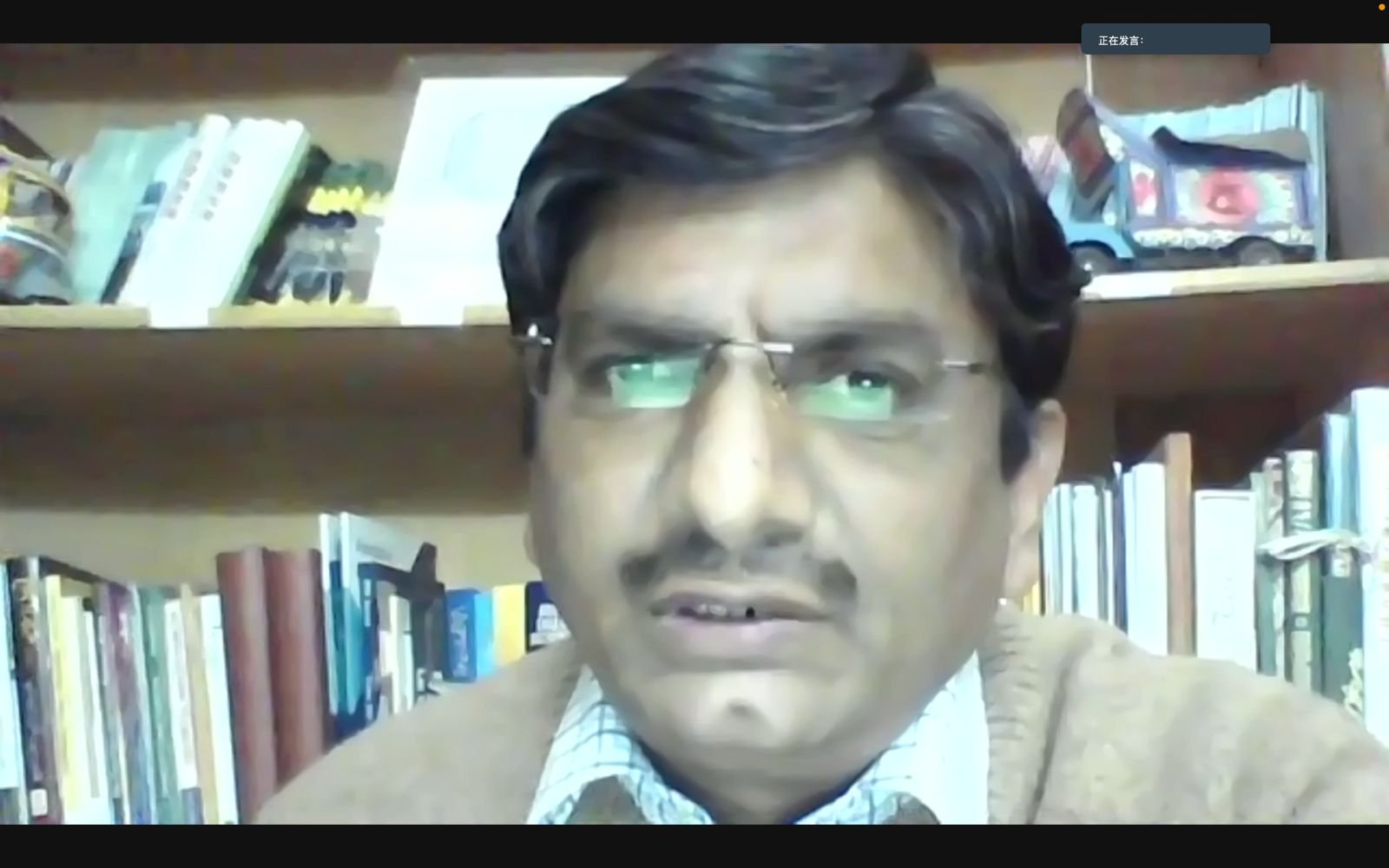Beijing, 18 February 2022 (TDI): “The Winter Olympics: Beijing Spirit and Global Implications – The online International Symposium on the Olympic Games in Beijing” was recently held online.
Scholars from China as well as abroad discussed and exchanged views on “the idea and spirit of Beijing Winter Olympics” along with “the global implications of the Olympic Games.”
Professor of Information Resources Management School of the Renmin University of China, Xu Yongjun, expounded the meaning of Beijing’s “Double Olympic” notion from four concepts: Sharing Olympics, Green Olympics, Open Olympics, and Honest Olympics.
He considers that the idea of the 2022 Beijing Olympic Games is the legacy and evolution of the 2008 Olympic concept. “Shared Olympic” and “Open Olympic Games” are the quintessence and development of “People’s Olympics” in 2008.
While the Clean Olympic Games is a type of innovation after the integration of Olympic and Chinese techniques. Science and technology are essential to support and ensure the culmination of the Olympic idea.
He further pointed out that safe, simple, and wonderful games are the noteworthy contribution of Beijing’s “Double Olympics” idea to the global Olympics.

Muhammad Asif Nur, the founder of the Friends of the “Belt and Road” Forum and Secretary-General of the SCO Friendship Forum in Pakistan, stressed the notion of “sports diplomacy.”
He enunciated that the Beijing Winter Olympic Games promote the development of world sports events, build a bridge of sports diplomacy and enhance mutual understanding and consensus.
The Professor at the School of Advanced Public Administration of the University of Lausanne in Switzerland and a Senior Expert on the International Olympic Movement, Jean-Lou Sharpe, proposed a “diamond framework” covering inputs, outputs, goals, as well as outcomes.
The proposal is with a view to a more scientific overall appraisal of the effect of the Olympic Games. He recommended that illustrating the objectives of the Olympic Games, isolating the responsibilities of the organizing committee and the heritage organization along considering diverse performance benchmarks were critical lessons to be understood from the framework.
A professor at the School of Public Administration at the Renmin University of China, Wei Na, accentuated the significance of conserving the volitional legacy of the Winter Olympics.
She pointed out that the volunteer service of the Winter Olympic Games is encountered with numerous challenges like new epidemic diseases, scattered sites, and extreme weather.
Regardless, with the zeal and commitment of volunteers, they still devised remarkable economic, social, and cultural values, along with promoting cultural exchanges via volunteer service, leaving an outstanding volunteer service legacy.
Director of Science and Technology Department of Capital Institute of Physical Education, Wang Zipu, debated the scientific and technological strength of the Beijing Winter Olympics, the connection between science and technology and the Olympic Games.
He stated that it is an important forum provided by technology for the Olympics and the backdrop of the application of technology in various periods. It demonstrates the new design of the amalgamation of science and technology with the Olympic Games.
A professor at Beijing Sport University, Huang Yaling, believes that the idea of the Winter Olympics in Beijing is positively compatible with the development objectives of the Olympic Movement.
Likewise, the Olympic spirit is deciphered with applicable actions, which has composed a brilliant chapter for the development of the Olympics and left a rich cultural legacy.
Professor Liu Yongsong of Hong Kong Baptist University articulated the rich heritage of the Beijing Winter Olympics for China as well as the world in terms of sports events, society, economy, culture, urban development, environment, and regional development.
Professor Liu Yongsong underscored that it is based on “touch” and “response” to the concept of globalization and puts forward a new understanding and thinking.
Ye Lin, Associate Dean of School of Politics and Public Affairs Management, Sun Yat-sen University, explained the methodology of the integration of modern Olympic development with the city’s response to challenges, keeping pace, overcoming difficulties, and continuous innovation.
He believes that the Olympic spirit not only incorporates a city’s material and non-material culture but is also founded on urban growth to persist to promote global development initiatives.
Holger Preuss, a member of the IOC Commission on Heritage and Sustainable Development and Professor at Johannes Guttenberg University in Mainz, Germany, elaborated on the legacy of the venue.
He remarked upon the operation status of the Olympic venues as well as the differences between the use of the venues for the Winter Olympics and the Summer Olympics.
Lastly, Li Shuwang, Director of the Department of Physical Education of Renmin University of China and Dean of the Institute of Sports Industry (Zhengding), appreciated the speakers for their rich and valuable opinion.
Li Shuwang stated that the summary and reflection of the event were very profound and detailed. The brainstorming of the participants has the potential to broaden the academic horizons of the Olympic Movement in miscellaneous fields.
The symposium was co-organized by the National Institute of Development and Strategy, Renmin University of China, the Sports Industry Research Institute, People’s University (Zhengding), and the Humanities Beijing (Humanity Olympics) Center.
I'm a detail-oriented, problem-solving, persistent multitasker. Having a magna cum laude MSc. in Strategic Studies from National Defense University, Pakistan, I believe in peaceful discourse & dialogue and have built my interest in nontraditional security threats.
I am an experienced writer with a primary focus on public policy, environmental security, nuclear strategy, and geopolitics!








